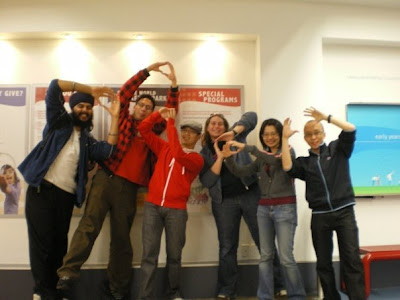"kekkyoku" 結局 which means "after all" or "finally". And after what has technically been a 2 year "delay", I've finally started school.

And by school, I mean UBC. As a student. I'm in the B. Ed (Bachelor's of Education) program for Secondary school teachers, specializing in Biology. This is something I actually planned on doing back in 2007 but I turned it down so I go could to Japan to do the
Shiramizu Karate Internship. It was also the very same program I ended up not re-applying to because I chose to stay another year in Japan at
Seiritsu Gakuen. I knew both of those experiences would be useful in this program, but it wasn't til I finally started class and listened to what the instructors and other students had to say that I realised just how relevant Japan was to this program.
The program's set up interestingly in that it's broken up into cohorts that learn the B. Ed curriculum in the context of their specialized subject. In my case, I'm in the science cohort and, within that, have a special course that focuses solely on the biology material in official BC-prescribed curriculum. And then there's a general science class so we can brush up on our chemistry and physics as well as other theory of teaching courses, such as social issues in the classroom or working with special needs children.
The most interesting aspect, I've found, is that I see members from my own cohort nearly everyday. It's got a bit of that high school "same class" feel which certainly helps everyone get to known each other and that, in turn, becomes handy considering all the group work that we do. And there are people from all walks of life from freshly graduated UBC biology students to a mother of two with a PhD in biochemistry. It makes for a really dynamic classroom and, with everyone's mind staying open, is a great chance to absorb the experiences of others.
And while not unexpected, the workload's managed to sneak up on me quite quickly. It's not "heavy" per se but relentless. Already I have an assignment to teach a mini-lesson (I'm going to teach everyone how to do a drumroll!), a group project to find out about Prince Edward Island's categorization of children with special needs, a positionality paper, and various readings to finish.
But I'll be fine. It's all about time management and if I'm going to be able to do this as a career, I should....... well, need to be able to handle something like this. So keep checking back to see how it goes!










